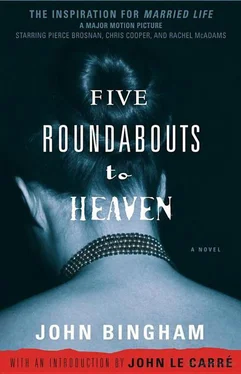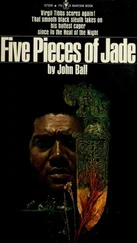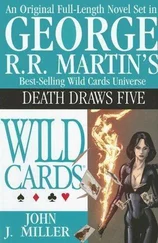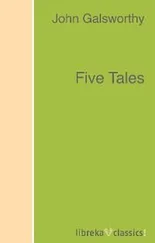John Bingham - Five Roundabouts to Heaven
Здесь есть возможность читать онлайн «John Bingham - Five Roundabouts to Heaven» весь текст электронной книги совершенно бесплатно (целиком полную версию без сокращений). В некоторых случаях можно слушать аудио, скачать через торрент в формате fb2 и присутствует краткое содержание. Жанр: Криминальный детектив, на английском языке. Описание произведения, (предисловие) а так же отзывы посетителей доступны на портале библиотеки ЛибКат.
- Название:Five Roundabouts to Heaven
- Автор:
- Жанр:
- Год:неизвестен
- ISBN:нет данных
- Рейтинг книги:4 / 5. Голосов: 1
-
Избранное:Добавить в избранное
- Отзывы:
-
Ваша оценка:
- 80
- 1
- 2
- 3
- 4
- 5
Five Roundabouts to Heaven: краткое содержание, описание и аннотация
Предлагаем к чтению аннотацию, описание, краткое содержание или предисловие (зависит от того, что написал сам автор книги «Five Roundabouts to Heaven»). Если вы не нашли необходимую информацию о книге — напишите в комментариях, мы постараемся отыскать её.
Five Roundabouts to Heaven — читать онлайн бесплатно полную книгу (весь текст) целиком
Ниже представлен текст книги, разбитый по страницам. Система сохранения места последней прочитанной страницы, позволяет с удобством читать онлайн бесплатно книгу «Five Roundabouts to Heaven», без необходимости каждый раз заново искать на чём Вы остановились. Поставьте закладку, и сможете в любой момент перейти на страницу, на которой закончили чтение.
Интервал:
Закладка:
He sat back in the chair, then, very still, his eyes staring at the ceiling, pale and drawn, the firelight reflected in the lenses of his spectacles.
“Don’t you see?” said Lorna miserably. “Don’t you see? If anything happened to her, we should never forgive ourselves. She would always be between us.”
“Would she?” asked Bartels bitterly. “Would she really? So they say in books of fiction. She would always be between us. Her shadow would come between us. Our happiness would turn sour. I know, I know, I’ve read about it. I wonder whether it is true. I doubt it.”
“I, for one, can’t risk it.”
The plans, the precautions, the hesitations, the fears, all were pointless. Beatrice was to die, a sacrificial victim on an altar of failure.
Even if Lorna changed her mind before he left, when she heard that Beatrice was dead she would think that he had taken matters into his own hands, had told her the truth; and that Beatrice had had a heart attack as a result. Lorna would never forgive him or herself.
He heard Lorna say: “I know what this means to you.” He thought how often people said that, and how little they really knew. He heard her add: “Believe me, I would like to have married you more than anything. But not this way.”
“Not this way,” he repeated softly.
That’s what he had said when Beatrice had her little palpitations and was so scared and unhappy.
Not this way. My freedom, yes, he had said, but not this way, not by her death; and later he had modified it, and said, not by her death in fear or pain.
“Don’t let’s come to any final decision tonight,” he implored her, but again he thought: What’s the use? If Beatrice dies, Lorna will blame me and herself.
“I think it’s as hard for me as for you,” said Lorna. “And I’ve already come to the decision. I shall feel no different tomorrow.”
Suddenly, she put her arms round him and placed her cheek against his brow, as he had to her earlier in the evening.
“Oh, my dear, I know it’s hard, but try not to take it too badly. Let’s see if we can’t get through to the end of our lives now without causing too much damage.”
After a while he said, quite simply: “All right, if that’s what you want.” He put her from him, firmly but not roughly, and rose to his feet. “Mind if I have that drink now?”
Lorna went over to the drinks table, poured him out a whisky, and handed him the glass.
“Aren’t you drinking?”
She shook her head, and stood by the grate, both hands on the mantelpiece, looking down into the fire. He drank half the whisky without a pause.
“What about us-now?” he asked.
“I think we should break it up,” whispered Lorna. “Half and half is no good, Barty.”
“All right,” he said, and drank off the remainder of the whisky. “As you wish.” He replaced the glass on the table.
“Don’t you think it better?” asked Lorna, still staring into the fire.
“As you wish,” said Bartels again. “I am going now. Thank you for your past kindness. Also for tonight’s supper.”
Lorna swung round quickly from the mantelpiece.
“Don’t let’s part like that, Barty, dearest.”
“Like what?”
“In bitterness.”
She made to put her arms round his neck, but he drew back.
“Don’t let’s part like that, either.”
She let her arms fall to her sides. “You think I’m beastly, I know, I’m sorry about that. I didn’t want that to happen.”
Bartels sighed and shook his head impatiently.
“I think you might have let me know a little earlier, that’s all.”
He was beginning to feel the panic rising inside him, in recurring waves; rising and subsiding, then rising again. Provided Beatrice adhered to her plans, he had time to get back. But he had to leave at once to be on the safe side. He had to go, now, without delay.
His emotions were confused, the pain caused by Lorna’s decision was anaesthetized by the fear that Beatrice might die for nothing, and the shock of Lorna’s words was deadened by the urgent need to get back to London as fast as he could.
Deep down, he was bitter and hurt, but those feelings were temporarily submerged beneath the turmoil of other emotions. He resented now every minute he had to spend in the house. He glanced at the clock. It was 9.10. An hour and a half. Less, to be safe.
He moved towards the door. He moved slowly, because the position was in one respect as it had been earlier: he could not afford to act unnaturally.
At the door, he turned. Lorna was standing in the middle of the room, looking after him.
“Let’s pretend I’m nipping down to the local to buy a bottle of gin,” he said. “Let’s make it easy, like that.”
His hand was on the door-knob when a thought occurred to him, and he paused, and came back into the room, and stood staring at the carpet, while the blood rushed into his face, as it always did when he was suffering from a sudden shock.
She had a habit of keeping his letters, and he had sent her a great many. He was trying to think quickly, to remember any phrase or phrases he may have written which, if the worst came to the worst, would sound damning in a court of law.
For a few seconds all he could think was: Thompson and Bywaters, Mrs Thompson, Frederick Bywaters, what had she written that had sounded so damning in court? Glass, it was something to do with glass. “I have tried the ground glass in his food, but it didn’t work,” something like that. Dramatizing herself, some said.
Her letters were found in his seachest, or somewhere. Both were hanged. His thoughts raced on. They put a white bag over your head, so that you felt all shut in, suffocating, worse than being in a locked room or a dark tunnel. He’d shout and struggle if they tried to do that to him, and it’d all be sordid and undignified.
A wave of claustrophobia swept over him, so that perspiration broke out on his forehead, and he had to clench his fists and breathe deeply, until, little by little, he could force his thoughts back to the letters he had written to Lorna.
Lorna Dickson stared at him. “Are you feeling all right, Barty?”
“Yes,” he said. “Yes, I’m all right. Just let me think for one moment.”
She said nothing, but moved over to the side table and poured out a small glass of brandy. She brought it over to him, but he only said:
“No, no, thank you. Not that. Just let me think clearly, Lorna. Clearly, just for a minute.”
But there was nothing in his letters. He was sure of that. There was no reason why there should be. What could there be? He hardly ever mentioned Beatrice in his letters.
He sought to concentrate his mind more narrowly upon recent letters-letters from Manchester, Bradford, Leeds, the south coast.
What had he written from Manchester, where he had bought the altrapeine? There was a mention of Beatrice in that letter, a reference to a talk with Lorna about telling Beatrice the truth, asking her to release him. It was before he had made up his mind to act differently. Only he hadn’t made it as clear as that in the letter.
Then he remembered the words he had used, and the significance of them again sent the blood rushing to his face.
“About Beatrice,” he had written, “I shall arrive at the cottage tomorrow evening. We shall be alone this weekend. A good opportunity to do it.”
And now he remembered another, an earlier one, written from Cardiff. Sometime ago now; but that didn’t matter, that didn’t matter at all, that merely tended to show how long a time he had been premeditating it all: “I will spend the first part of the evening with you, my beloved, and from you I will draw the strength to enable me to do that which we both know has to be done sometime.”
Читать дальшеИнтервал:
Закладка:
Похожие книги на «Five Roundabouts to Heaven»
Представляем Вашему вниманию похожие книги на «Five Roundabouts to Heaven» списком для выбора. Мы отобрали схожую по названию и смыслу литературу в надежде предоставить читателям больше вариантов отыскать новые, интересные, ещё непрочитанные произведения.
Обсуждение, отзывы о книге «Five Roundabouts to Heaven» и просто собственные мнения читателей. Оставьте ваши комментарии, напишите, что Вы думаете о произведении, его смысле или главных героях. Укажите что конкретно понравилось, а что нет, и почему Вы так считаете.












